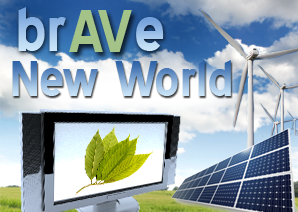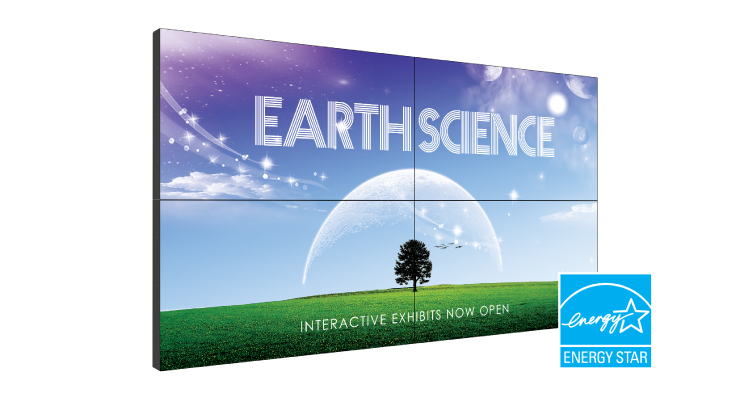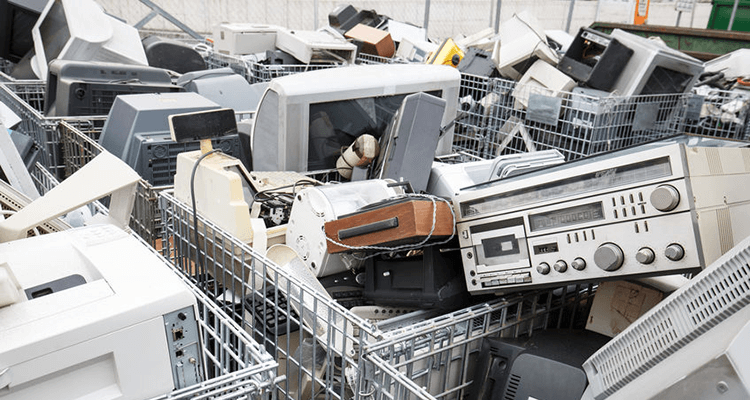An Eco-Certification Primer
 Have you ever done your best to swim through the alphabet soup of eco-certifications? And with Apple voluntarily pulling the EPEAT label from its products (and then changing its mind two days later), there is increased scrutiny and more need than ever to understand how these labels differ and what each brings to the table. So, even though at this time of year, any kind of swim probably sounds pretty appealing, you’d probably prefer a lot less confusion around that alphabet soup, and a bit more clarification on what all of the certifications are out there, and what they mean to you as an AV professional.
Have you ever done your best to swim through the alphabet soup of eco-certifications? And with Apple voluntarily pulling the EPEAT label from its products (and then changing its mind two days later), there is increased scrutiny and more need than ever to understand how these labels differ and what each brings to the table. So, even though at this time of year, any kind of swim probably sounds pretty appealing, you’d probably prefer a lot less confusion around that alphabet soup, and a bit more clarification on what all of the certifications are out there, and what they mean to you as an AV professional.
Energy Star: As a certification backed by the U.S. Environmental Protection Agency and the U.S. Department of Energy, Energy Star carries some serious street cred! Ranging from audiovisual to hospitality/hotels to water/wastewater utilities, the primary focus of Energy Star-certified electronics is traditionally around the power consumption of consumer audiovideo. So, for the professional market, we have long discounted the value of the Energy Star certification. However, as boundaries between our markets increasingly encroached upon one another — and as our clients have continued to ask for certified products — there was a movement supported by InfoComm to provide influence and advice on how the Energy Star certification could be implemented in a professional market. Thanks to the input and feedback from AV professionals, Energy Star now considers the needs of the ProAV market in standby functionalities.
Key features:
- Focuses on energy consumption
- 20 years in existence
- Backed by U.S. EPA
- Third-party verified
- Excludes projectors, wireless microphones, media servers, videoconferencing systems, control and automation products and battery-operated products
EPEAT: EPEAT is a registry of products that meet a set of environmental criteria. The criteria include: Reduction/elimination of environmentally sensitive materials; material selection; design for end of life; product longevity/life extension; energy conservation; end-of-life management; corporate performance; packaging. There are three levels of achievement, ranging from Bronze (meets all criteria) to Silver (meets all criteria plus 50 percent of optional) to Gold (meets all criteria plus 70 percent of optional). The U.S. EPA requires that 95 percent of its electronics purchased meet EPEAT criteria.
Key features:
- Self-certifying
- Traditionally just PCs and PC displays, but will soon include TVs and imaging equipment
TCO: Self-proclaimed as the broadest certification, TCO has long been centered around the IT industry, but includes projector and displays. It considers its standards to be more about sustainability, so they include more than just environmental criteria. This includes corporate social responsibility, environmental management system, hazardous substances in products and packaging, climate aspects, ergonomics, health, safety and emissions, products and packaging designed for recycling and product take-back.
Key features:
- TCO is a pass/fail system, meaning the product must meet ALL criteria to qualify
- 20 years in existence
- Includes projectors
- Covers social, economic and environmental
- Requires third-party verification
 As Clare Hobby, regional manager of TCO observed, the ProAV industry seems to have surpassed the IT industry in having the most energy and enthusiasm for supporting eco-certifications. We should be proud that our demand is having a positive influence on our vendors in manufacturing more responsible products. Be sure to look at these eco-certifications for more resources and insight on how to include specs in your purchasing activity.
As Clare Hobby, regional manager of TCO observed, the ProAV industry seems to have surpassed the IT industry in having the most energy and enthusiasm for supporting eco-certifications. We should be proud that our demand is having a positive influence on our vendors in manufacturing more responsible products. Be sure to look at these eco-certifications for more resources and insight on how to include specs in your purchasing activity.
Midori Connolly is CEO and Chief AVGirl of Pulse Staging & Events, Inc. in Escondido, California. She wrote the first-ever set of Sustainable Staging guidelines after discovering none existed. She is the vice-chair of the AV committee for the U.S. EPA’s Green Meetings Standards and regularly speaks and writes about corporate social responsibility and green practices in live events and meeting planning. Reach her at midori@pulsestaging.com





